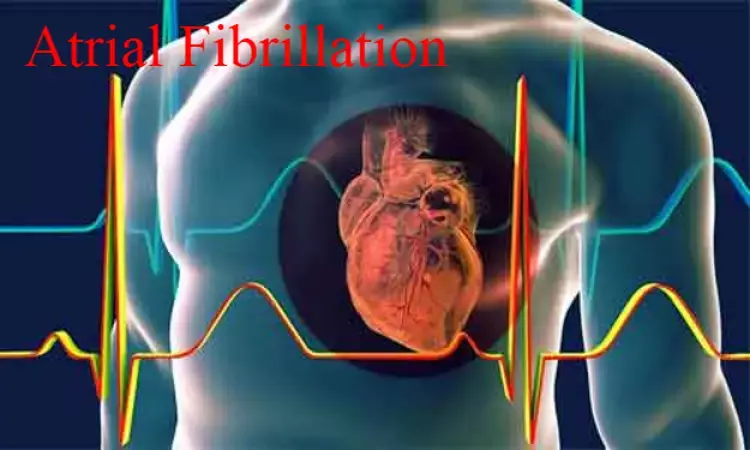- Home
- Medical news & Guidelines
- Anesthesiology
- Cardiology and CTVS
- Critical Care
- Dentistry
- Dermatology
- Diabetes and Endocrinology
- ENT
- Gastroenterology
- Medicine
- Nephrology
- Neurology
- Obstretics-Gynaecology
- Oncology
- Ophthalmology
- Orthopaedics
- Pediatrics-Neonatology
- Psychiatry
- Pulmonology
- Radiology
- Surgery
- Urology
- Laboratory Medicine
- Diet
- Nursing
- Paramedical
- Physiotherapy
- Health news
- Fact Check
- Bone Health Fact Check
- Brain Health Fact Check
- Cancer Related Fact Check
- Child Care Fact Check
- Dental and oral health fact check
- Diabetes and metabolic health fact check
- Diet and Nutrition Fact Check
- Eye and ENT Care Fact Check
- Fitness fact check
- Gut health fact check
- Heart health fact check
- Kidney health fact check
- Medical education fact check
- Men's health fact check
- Respiratory fact check
- Skin and hair care fact check
- Vaccine and Immunization fact check
- Women's health fact check
- AYUSH
- State News
- Andaman and Nicobar Islands
- Andhra Pradesh
- Arunachal Pradesh
- Assam
- Bihar
- Chandigarh
- Chattisgarh
- Dadra and Nagar Haveli
- Daman and Diu
- Delhi
- Goa
- Gujarat
- Haryana
- Himachal Pradesh
- Jammu & Kashmir
- Jharkhand
- Karnataka
- Kerala
- Ladakh
- Lakshadweep
- Madhya Pradesh
- Maharashtra
- Manipur
- Meghalaya
- Mizoram
- Nagaland
- Odisha
- Puducherry
- Punjab
- Rajasthan
- Sikkim
- Tamil Nadu
- Telangana
- Tripura
- Uttar Pradesh
- Uttrakhand
- West Bengal
- Medical Education
- Industry
DAPT has less bleeding risk than triple therapy in patients with AF after PCI

Antiplatelet therapy is an essential component for care for patients with AF after coronary stent placement. The aim is to mitigate stroke risk and to promote stent patency.
US: Atrial fibrillation represents a serious heart rhythm disorder associated with substantial mortality and morbidity. The presence of AF is also associated with a higher incidence of stroke, heart failure or cognitive dysfunction. Various treatment modules are available based on the patients' condition at the time of presentation.
A study was published in the journal Annals of Internal Medicine regarding the effects of dual versus triple therapy on bleeding and ischemic outcomes in adults with AF after PCI(percutaneous intervention). Use of dual therapy with a direct oral anticoagulant (DOAC) plus P2Y12 inhibitor was associated with reduced risk for major bleeding compared with triple therapy with a vitamin K antagonist (VKA) plus aspirin and P2Y12 inhibitor for patients with nonvalvular atrial fibrillation after the percutaneous coronary intervention (PCI).
Two hazards navigate while caring for patients with AF after coronary stent placement who require anticoagulation to mitigate stroke risk and antiplatelet therapy to promote stent patency. There is a need to avoid bleeding events—which are increased with combination therapy—while also avoiding ischemic events, such as stent thrombosis, myocardial infarction, and ischemic stroke.
Randomized controlled trials that compared the effects of dual versus triple therapy on bleeding, mortality, and ischemic events in adults with AF after PCI was done by the researchers from West Virginia University and Johns Hopkins University.
Four trials encompassing 7953 patients were selected. At the median follow-up of 1 year,
1)High-certainty evidence showed that dual therapy was associated with reduced risk for major bleeding compared with triple therapy.
2)Low-certainty evidence showed inconclusive effects of dual versus triple therapy on risks for all-cause mortality (RD, 0.004), cardiovascular mortality (RD, 0.001), myocardial infarction (RD, 0.003), stent thrombosis (RD, 0.003), and stroke (RD, −0.003).
3)Heterogeneity of study designs, dosages of DOACs, and types of P2Y12 inhibitors were some of the limitations of the study.
To conclude, in adults with AF after PCI, dual therapy reduces the risk for bleeding compared with triple therapy, whereas its effects on risks for death and ischemic endpoints are still unclear.
For further reading click on the following links,
MBBS
Dr K B AARTHI-has completed MBBS from SRM UNIVERSITY TAMIL NADU,Her interest is in the field of Pediatrics and Anaesthesia, also passionate in doing research and publishing articles.She joined Medical Dialogues in 2020 and publishes health news and medical updates. Email: editorial@medicaldialogues.in. Contact no. 011-43720751,9786713226
Dr Kamal Kant Kohli-MBBS, DTCD- a chest specialist with more than 30 years of practice and a flair for writing clinical articles, Dr Kamal Kant Kohli joined Medical Dialogues as a Chief Editor of Medical News. Besides writing articles, as an editor, he proofreads and verifies all the medical content published on Medical Dialogues including those coming from journals, studies,medical conferences,guidelines etc. Email: drkohli@medicaldialogues.in. Contact no. 011-43720751


